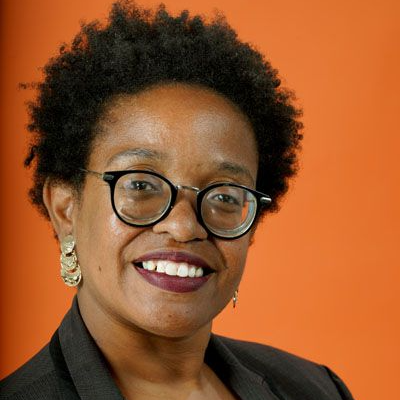“What will be left of my city this time? What will still be there?”
Ten years ago, I wrote those words about Baltimore from more than 1,000 miles away in Palm Beach County, Florida. My husband and I watched helplessly as our hometown burned in a torrent of heartbreak, anger and madness. A Black man named Freddie Gray had died from a spinal cord injury after riding handcuffed and unbuckled in a Baltimore Police van. After a week of peaceful protests, the city had exploded into a confusion of burned-down buildings, looting and frustrated citizens looking for answers they weren’t getting.
I felt powerless and removed, beset by extreme images, online pleas of peace from local friends and family and the relentless judgment that always comes from outside media whenever anything controversial happens in Baltimore. So I exercised the only action available to me: putting fingers to keyboard. The column I wrote for the Palm Beach Post, where I was then employed, covered all the emotions I felt for my native city.
I was protective of this precious place, against the destruction and the condemnation of the entire citizenry — much of it racially based from people on the outside. But when I read my article now, I think I got something crucial wrong. In my need to defend the city from outsiders, I didn’t really understand or communicate all of the nuances because I was not physically here.
I wrote from far outside the powder keg, having not felt its flames on my skin for years, so I was not personally in danger when years of racial and financial neglect finally blew. Now I am back inside the fire, and the heat from those flames once again feels as present as the disillusionment of a crisis that should have led to solutions. Those solutions have not been enough.
I thought I understood then, and my motives were pure. But I didn’t really get it as much as I thought I did. And I am so sorry.
Read More
“I love Baltimore like a sister, like a mother, like your little brother who screws up all the time but whose back you’d have, no matter what,” I wrote in my piece, which eventually won national awards. “You defend what you love.”
At home a decade later, I still agree with my basic argument that Baltimore is eternally judged. Maybe it’s by the people who have never lived here but decided the story of crime and corruption in “The Wire” was the only relevant one. Or maybe it’s by former residents who fled and now wish for its implosion like the Biblical Jonah, who sat on a hill outside a city whose people he hated and waited for God to destroy it.
Still, I am afraid my defense was self-blaming in a way I didn’t mean. I remembered disliking the headline written by someone else for my piece: “Don’t judge Baltimore by the ‘violent’ crazies.” Without reading further you would assume it was one more wide-painted brush against an entire population. You might believe I thought that anyone who was angry and protesting and shouting was wrong. If you’re predisposed to hate Baltimoreans, particularly the Black ones, you might say, “See? Even this Black lady who moved away agrees!”
I hate that. I did not agree.
I still decry the destruction of property that disenfranchised so many residents who had already been victims of segregation and redlining. But in my rush to put out the fire, my words now read somewhat like I was embarrassed and wanted to shut up people who didn’t live here before the rhetoric got worse. Like I was ashamed of the real humans struggling to balance their reality with the place they called home.
Like I was the outsider.
The Baltimore Banner, along with other outlets, has done exhaustive work on the facts of what happened to Freddie Gray, and the ways the city has changed since then, for both better and worse. I have read of and talked to people who hoped that the Uprising — not a riot — would result in something new and promising. Many have been disappointed.
When I moved back to the city in 2020, two years before The Banner even launched, I wondered how long I would have to live here to feel competent telling its story again from the inside. How long until I felt that pride and protectiveness and righteous anger generated from down the street and not a different state? I believe that I am doing that.
But a renewed sense of purpose doesn’t cover past hurt or mistakes. No one here ever criticized that column, but I see how they could.
In retrospect, I wish I’d stopped being so defensive and just let the cries wash over me from a better place of understanding. Hell, I thought I was!
But, you know, hindsight and all that. In the end, I’m glad I spoke up for my city. Thank you for welcoming me back so I can embrace and fight along with you. Baltimore is still here. And we aren’t going anywhere.




Comments
Welcome to The Banner's subscriber-only commenting community. Please review our community guidelines.